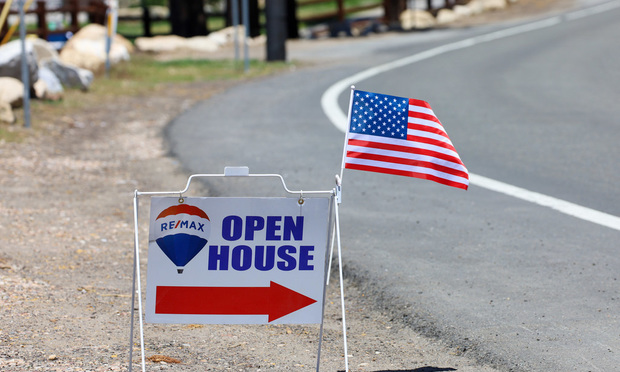Parmalat Spotlights Insurers' Global Problem
By Mark E. Ruquet
NU Online News Service, Jan. 7, 1:12 p.m. EST?The scandal that has erupted in Europe over Parmalat Finanziaria S.p.A spotlights a new variety of claims problems for globalized corporate liability risks, an insurance executive said.[@@]
"We are now, for the first time, literally grappling with the globalization of the companies and what this can mean in some of these claim situations," observed Ann M. Longmore, national product leader for London-headquartered Willis, in the executive risks practice.
Ms. Longmore said with cases like Parmalat, "It is not one set of laws or governing body that is going to determine the outcome. Whether or not [regulators cooperate internationally] is really going to set the trend for future claims that come down the pike."
In December, problems began to develop for the Parma, Italy-based international dairy when it missed a debt payment. Subsequent investigation by Italian authorities revealed that Parmalat's books were questionable.
Soon Italian investigators said they discovered that its founder Calisto Tanzi had funneled more than $600 million into a failing family owned tourist business in the Cayman Islands. Authorities said subsequent investigation has found questionable bank transactions, involving Bank of America Corp., allegedly with forged documents to the Cayman Islands account of Bonlat Financing Corporation that the bank said it unearthed.
Investigators have said that the total fraud could amount to more than $5 billion.
Like Enron, which led to the demise of the accounting firm Arthur Anderson, Grant Thornton, LLP, based in Chicago, is fighting to explain how this happened. In a statement, the accounting firm said it was conducting its own investigation of its Italian unit.
For insurers, in addition to the exposure from the directors and officers and errors and ommissions risk there is also the possibility of claims for investment losses. According to Moody's Investors Service, carriers had invested millions in stocks and bonds with Parmalat, which is now in bankruptcy.
According to Moody's, the holdings among U.S. life insurers amounts to $1.6 billion, totaling 27 insurers, including American International Group, John Hancock, Prudential and Pacific Life. The holdings, Moody's said, would not be enough to affect ratings.
The Securities and Exchange Commission said on Dec. 30, 2003, that it is suing Parmalat over its $100 million offering of unsecured Senior Guaranteed Notes to U.S. investors after overstating its assets and understating it liabilities.
The company has issued a statement admitting that a 2002 financial statement overstated $4.9 billion and that it falsely stated it was repurchasing $3.6 billion in debt security with money it did not have.
From an insurance coverage standpoint, concerning D&O and E&O coverage, carriers still are determining what their risk exposure is.
A spokesperson for Lloyd's of London said the group does not have "significant" risk exposure to both Parmalat and Bonlat.
Ms. Longmore said insurers are scrambling to see what their risk exposures are. The Parmalat fraud may go back as far as 1989, she said, and insurers have to determine the extent of coverage for company officials before determining where the contract cancellation comes into play. She added that whatever limits the carriers had are probably considered gone at this point, when looking at defense expenses and investigation.
Other issues the company and insurers need to deal with are not only the extent of current coverage but also the need to consider new coverage for executives and board members who are being called in to help rehabilitate Parmalat, she said.
Ms. Longmore related that "intense" talks with insurers are going on to secure the type of coverage these executives will need to protect themselves going forward.
Until the activity is uncovered, misdeeds could be continuing until the new executives and boards take their positions and unearth the problems, Ms. Longmore explained. In the end, this could mean the transfer of substantial amounts of premium dollars to secure D&O and E&O coverage, she noted.
Recoverables could be affected in different countries by what transpires in Italy and the cooperation or lack of cooperation between regulators in other countries, particularly the U.S., she said. There also may be fidelity exclusion issues, depending on the results of investigations.
Europe (excluding the United Kingdom, which has been toughening its regulations) in general thought it was doing a good job at corporate governance, she said, but the Parmalat scandal has "blown them away," and may mean a re-thinking of what others considered lax standards.
"To see what had been a family owned business, and was still dominated by family shareholders, and had become a huge global conglomerate, to have a fraud going on for potentially over a decade, of this size, is just shocking to them," she observed.
She noted that there have been other major scandals in Europe recently, notably Royal Ahold and DaimlerChrysler.
Royal Ahold NV, the Dutch grocery chain giant, discovered accounting irregularities of $1.1 billion in the summer of 2003. DaimlerChrysler reached a $300 million agreement in the U.S. in 2002 to settle questions of whether its merger was actually a takeover. The automaker is currently in a $1.2 billion legal battle with Kirk Kerkorian, a major shareholder at the time of the merger, over the same issue.
She said in addition to Parmalat, there are other overseas scandals not being talked about in the U.S. Meanwhile, she added, "the European markets are getting a very quick wake-up call and education on what real directors and officers liability is all about." Ms. Longmore said these incidents should also boost D&O premiums across Europe.
"It's going to be a little bit hard to explain, on an ongoing basis, why insurance outside of the U.S., for D&O, is as low as it is after this," Ms. Longmore said. "There has been a ground swell of claims in Europe in the past five or six years, and Parmalat is showing that this is not an aberration. It is clearly going to reoccur in the next couple of years."
Want to continue reading?
Become a Free PropertyCasualty360 Digital Reader
Your access to unlimited PropertyCasualty360 content isn’t changing.
Once you are an ALM digital member, you’ll receive:
- Breaking insurance news and analysis, on-site and via our newsletters and custom alerts
- Weekly Insurance Speak podcast featuring exclusive interviews with industry leaders
- Educational webcasts, white papers, and ebooks from industry thought leaders
- Critical converage of the employee benefits and financial advisory markets on our other ALM sites, BenefitsPRO and ThinkAdvisor
Already have an account? Sign In Now
© 2024 ALM Global, LLC, All Rights Reserved. Request academic re-use from www.copyright.com. All other uses, submit a request to [email protected]. For more information visit Asset & Logo Licensing.








